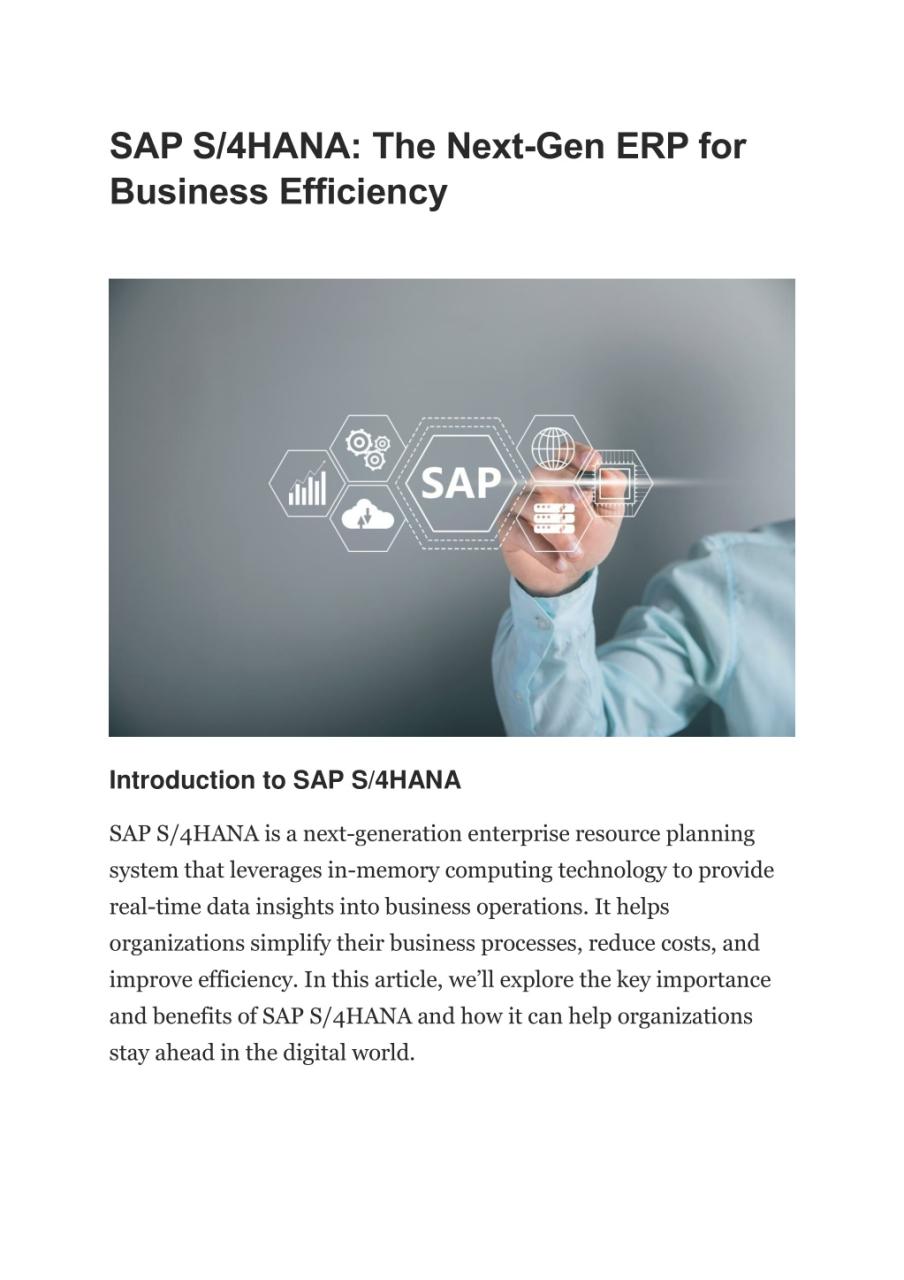Unveiling the Power of Epicor ERP: A Comprehensive Guide
Introduction
In the ever-evolving landscape of business management, the adoption of Enterprise Resource Planning (ERP) systems has become indispensable. Epicor ERP, a leading player in the industry, stands out with its robust capabilities and comprehensive suite of solutions. This comprehensive guide delves into the intricacies of Epicor ERP, providing a thorough understanding of its features, advantages, and potential drawbacks.
Understanding Epicor ERP: A Comprehensive Overview
Epicor ERP is a cloud-based ERP system designed to streamline and optimize business processes across various industries. It seamlessly integrates core business functions, including finance, supply chain management, manufacturing, customer relationship management (CRM), and human capital management (HCM), into a single, cohesive platform.
Key Features and Functionality
- Advanced Financial Management: Epicor ERP offers robust financial management capabilities, enabling businesses to streamline accounting processes, manage cash flow, and gain real-time insights into financial performance.
- Integrated Supply Chain Management: The system’s supply chain management module provides end-to-end visibility into inventory levels, supplier relationships, and logistics operations. It facilitates efficient procurement, inventory management, and order fulfillment.
- Comprehensive Manufacturing Management: Epicor ERP empowers manufacturers with advanced production planning, scheduling, and quality control tools. It streamlines production processes, optimizes resource utilization, and ensures product quality.
- Seamless CRM and HCM Integration: The system’s CRM and HCM modules enable businesses to manage customer relationships, automate sales processes, and streamline human resource functions, fostering employee engagement and productivity.
 .
.
Advantages of Epicor ERP
- Improved Efficiency and Productivity: Epicor ERP streamlines business processes, eliminates manual tasks, and automates workflows, resulting in significant efficiency gains and increased productivity.
- Enhanced Data Visibility and Accessibility: The system provides a centralized repository for all business data, enabling real-time access to critical information and facilitating informed decision-making.
- Improved Collaboration and Communication: Epicor ERP fosters collaboration among different departments and teams, ensuring seamless communication and knowledge sharing.
- Scalability and Flexibility: The system’s modular design allows businesses to tailor it to their specific needs and scale it as they grow.
- Industry-Specific Solutions: Epicor ERP offers industry-specific solutions tailored to the unique requirements of various sectors, such as manufacturing, distribution, and healthcare.
Disadvantages of Epicor ERP
 .
.
- Implementation Costs: The implementation of Epicor ERP can be a significant investment, requiring careful planning and resource allocation.
- Complexity and Learning Curve: The system’s comprehensive functionality can create a learning curve for users, especially for those with limited ERP experience.
- Customization Challenges: While Epicor ERP offers flexibility, extensive customization may require additional resources and expertise.
- Integration Challenges: Integrating Epicor ERP with legacy systems or third-party applications can be complex and time-consuming.
- Support and Maintenance Costs: Ongoing support and maintenance costs should be factored into the total cost of ownership.
Essential Information About Epicor ERP
- Deployment Options: Epicor ERP is available both on-premises and in the cloud, offering businesses flexibility in deployment.
- Industry Expertise: Epicor ERP has a strong track record of serving various industries, including manufacturing, distribution, retail, and healthcare.
- Customer Support: Epicor provides comprehensive customer support, including training, documentation, and technical assistance.
- Pricing: Epicor ERP pricing varies based on the number of users, modules deployed, and deployment option.
- Implementation Timeline: The implementation timeline typically ranges from several months to a year, depending on the complexity of the project.
Frequently Asked Questions
-
What is the difference between Epicor ERP and other ERP systems?
Epicor ERP stands out with its industry-specific solutions, robust manufacturing capabilities, and ease of use.
-
Is Epicor ERP suitable for small businesses?
Yes, Epicor ERP offers tailored solutions for small businesses, providing them with the tools they need to grow and succeed.
-
Can Epicor ERP be integrated with other systems?
Yes, Epicor ERP offers open APIs and connectors, enabling seamless integration with third-party applications and legacy systems.
-
What is the cost of implementing Epicor ERP?
The implementation cost varies based on the size of the organization, the number of modules deployed, and the complexity of the project.
-
How long does it take to implement Epicor ERP?
The implementation timeline typically ranges from several months to a year, depending on the project’s complexity.
-
What is the return on investment (ROI) for implementing Epicor ERP?
The ROI can be significant, with businesses experiencing improved efficiency, reduced costs, and increased profitability.
-
What is the difference between Epicor ERP and Microsoft Dynamics ERP?
Epicor ERP is known for its industry-specific solutions, while Microsoft Dynamics ERP offers a broader range of modules and functionality.
-
What are the key trends in ERP software?
Key trends include cloud-based deployment, artificial intelligence (AI) integration, and increased focus on user experience.
-
How can I choose the right ERP system for my business?
Consider your business needs, industry requirements, budget, and long-term goals when selecting an ERP system.
Conclusion
Epicor ERP is a powerful and comprehensive ERP system that can transform business operations and drive growth. Its robust functionality, industry-specific solutions, and ease of use make it an ideal choice for organizations seeking to streamline processes, improve efficiency, and gain a competitive edge. While implementation costs and complexity should be considered, the potential benefits of Epicor ERP can far outweigh these drawbacks.
Call to Action
Take the next step towards optimizing your business operations by exploring Epicor ERP. Contact our team of experts today to schedule a consultation and learn how Epicor ERP can empower your organization to achieve its full potential.
Disclaimer
The information provided in this guide is for general knowledge purposes only and should not be construed as professional advice. It is recommended to consult with an experienced ERP consultant to determine the best ERP solution for your specific business needs.
 .
.

